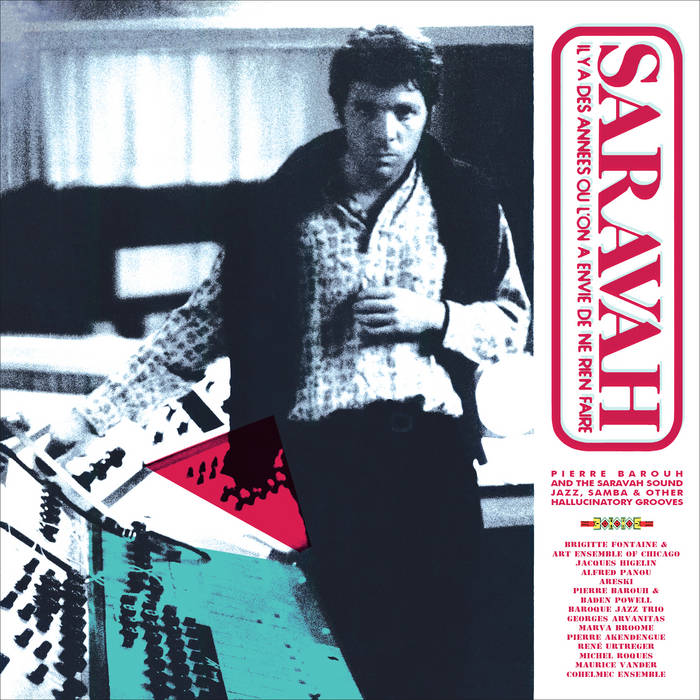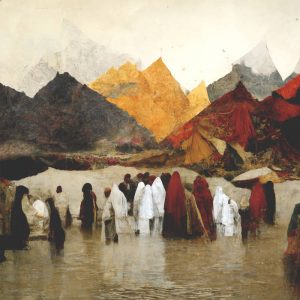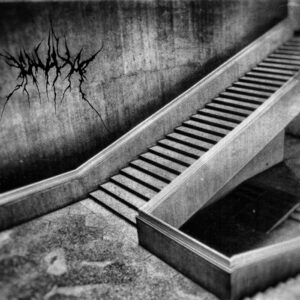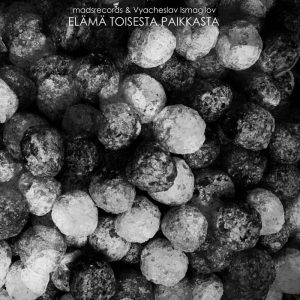As I’ve been stewing over this release for well over a month now, it’s exciting to finally announce that today, this scorching compilation is finally available on vinyl and download from our friends at WeWantSounds. In fact, the only depressing thing about this gem is that I can’t hear it on vinyl yet as I’m currently in Belgrade, Serbia, waiting to see where I move to next before settling down back in the Czech Republic.
Normally, I’ll either place my own personal thoughts about a music, or use clippings from a press release, but the Saravah story needs a bit of a deeper explanation for you, my friends, the readers, to see why this release is such an important event.
Pierre Barouh is a legend in France. A gifted singer in the 60s, he became an icon with the Claude Lelouch film “Un Homme et Une Femme” in 1966 that made him a star. Indeed, in 1965 while in Brazil, on the insistence of Vinicius de Moraes, he recorded French version of ‘Samba de Bênção‘ with Baden Powell on a revox, retitled ‘Samba Saravah’ and played it to his friend Lelouch who fell in love with the song and decided to use it in the film. Barouh plays his own character in it and also wrote the score with composer Francis Lai. The rest is history: The film and the score became huge hits. But instead of cashing in on this success, Barouh decided to develop Saravah Publishing into an label and a recording studio with his old friend and associate Fernand Boruso to develop projects in a truly independent and original way.
Through their film connections, came Brigitte Fontaine and Jacques Higelin who were already making their marks in the French underground and had recorded ‘Cet Enfant Que Je T’avais Fait’ for the 1968 film “Les Encerclés“. Saravah signed them on the spot and the song, arranged by Jean Claude Vannier, which would become a cult classic, appeared on Fontaine’s breakthrough debut LP “Brigitte Fontaine Est… Folle.” Fontaine would go on to record several albums for Saravah – often with her partner Areski Belkacem – including “Comme A La Radio” in 1969 with Art Ensemble of Chicago. The latter are also featured on ‘Mystifying Mama’ by Marva Broome and ‘Je Suis Un Sauvage’ by Alfred Panou, an African actor and singer who’d worked with Jean-Luc Godard.
Pierre Barouh pioneered Music from Africa and Latin America as he’d spent time in Brazil (in 1969 he directed ‘Saravah’ a fascinating documentary about the Rio music scene with Baden Powell, Maria Bethania, Paulinho da Viola and Pixinguinha). He released two albums by Gabonese artist Pierre Akendenge, whose ‘Orema Ka-ka-ka’ from the 1976 album ‘Africa Obota’ is featured here.
Through Boruso, Saravah also released a handful of jazz albums including the “Pianos Puzzle” series from which come Rene Urtreger’s ‘Tchac Poum Poum’, Georges Arvanitas’ ‘Trane’s Call’ and Maurice Vander’s ‘Sicilienne’. The label also ventured in fascinating recordings mixing Jazz, experimental music and pop by Baroque Jazz Trio, Michel Roques or Cohelmec Ensemble.
The set also features rare singles by Beartrice Arnac (then Boruso’s girlfriend) with the jazzy ‘Le Bruit et le Bruit’ and Jacques Higelin’s ‘Je Jouais le Piano’, one of the first songs recorded for the label and which has never been reissued since. The set ends with a haunting duet between Pierre Barouh and Baden Powell, recorded in 1965 during the same Rio session as ‘Samba Saravah’.
Fernand Boruso, called “Fern” left in 72. After a few successful years, the label went into decline and would never capture the energy of the beginnings. Saravah would nonetheless leave a rich and fascinating body of work whose influence keeps growing over the decades. Pierre’s Son, Benjamin, has been preserving the label’s archives for 30 years and is working on a new documentary “L’État de Vacance” on Saravah in the 70s, out soon.



